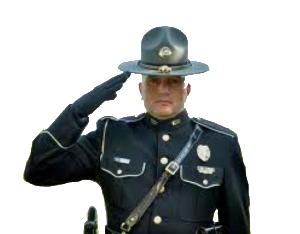From Relationship Fundraising, by Ken Burnett, Wiley 2002.
This story is and example of supporter recognition par excellence. It’s included here because it shows that donors and volunteers want to be involved in their favourite causes and will happily go along with whatever creative ways we can find to make that involvement real. This story was first told to me by an eminent American database expert called John Groman.
Donors want to be involved in their favourite causes. Even if they clearly understand it as a device designed to secure their involvement, they appear not to mind at all. The joining of a structured scheme gets them in on the inside, usually at a very modest cost. Fundraisers and campaigners should capitalise on this compulsion to belong. Voluntary organisations have a clear and very desirable product in involvement schemes, one that is so far under-developed in many countries.
A classic example of how completely this can work in practice was the launching of the President’s Task Force, an elite donor group established by Ronald Reagan’s office shortly after his election in 1981 as president of the USA. Of course the qualification to join the President’s Task Force was that you should give a minimum donation – $10 each month – to campaign funds. Large numbers of patriotic Republicans rushed to do their duty, trading a small amount of their disposable cash for the recognition and reward that went with being able to tell friends and neighbours that they were a member of the President’s Task Force.
Various pieces of commemorative paraphernalia were produced and distributed in case members had to prove their status to doubting acquaintances who needed physical evidence of their friend’s important role in the affairs of slate. These included a ‘presidential medal of merit”, a presidential medal of merit lapel pin, a model American flag, which was dedicated en masse at a special ceremony in the White House, and inscription of the donor’s name on the ‘presidential roll of honour’. There was even an exclusive ‘members only’ Task Force telephone hotline.
Donors, of course, loved it. For just $10 a month this was real value for money. Most of all to encourage the authentic feel of the campaign the fundraisers had produced stationery that was the exact facsimile of the President’s writing paper. Colour printed and embossed, laser personalised and signed it looked exactly as it would had the President himself taken time out from his busy schedule to write a personal note to Elmer E Rosenblum, or whomever, to acknowledge his individual contribution and stress its importance to America.
More than a few of these letters were framed and hung in a prominent place in the family home so that visitors could be easily subjected to an hour or so’S dissertation on Elmer’ 5 sacrifice for his country.
Across the length and breadth of the entire United States, thousands of Republicans took their membership of the President’s Task Force very seriously indeed – and the dollars rolled into the President’s office as a result. Sustained by a brilliant direct marketing campaign of record and reward, the President’s Task Force gave its donors something beyond price – the prestige of practical involvement in something they believed in. As such it simply used the best of technique and technology, plus a forgivable amount of kitsch, to establish the ideal relationship fundraising proposition, an ongoing relationship where both donor and recipient could benefit in equal amounts, at the end of which a clear financial and practical target could be reached.
In relaying the case history of the ‘President’s Task Force’ at the International Fund Raising Workshop in Holland, John Groman of Epsilon Data Management provided an anecdote which summed up the power of the campaign.
Late one evening a motor-cycle patrolman flagged down a speeding motorist on one of America’ 5 interminable inter-state highways. With customary leisurely grace he strolled up to the driver, who appeared to be in something of a hurry, and proceeded to ask him to provide his driving licence and evidence of insurance. Without a word, but inwardly seething at the delay, the driver – it may even have been Elmer E Rosenblum – got out of his car and led the patrolman firmly by the hand round to the back of the car, to the enormous boot (or trunk) of his Cadillac. Still without a sound, but with a gesture of magnificently righteous indignation, he flung his hand dramatically down to point out the large and very official-looking bumper sticker which prominently proclaimed the ‘President’s Task Force’ and indicated that the driver was, in fact, nothing less than a member.
The patrolman was astounded. He stammered a fulsome apology, saluted, swore it wouldn’t happen again and waved his distinguished visitor happily on his way. I don’t know that the patrolman escorted Elmer across the state line with lights flashing and sirens wailing, but I like to think he did.

I am a recipient of the Medal of Merit presented by Ronald Reagan for economic work done for America and Isreal-Roger Freedman